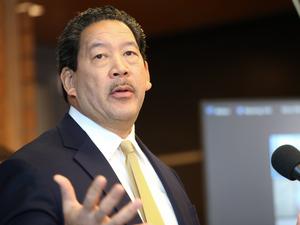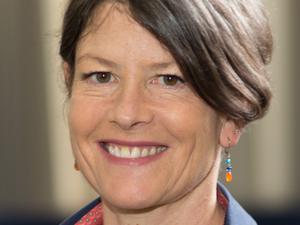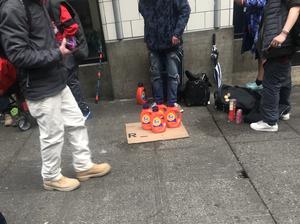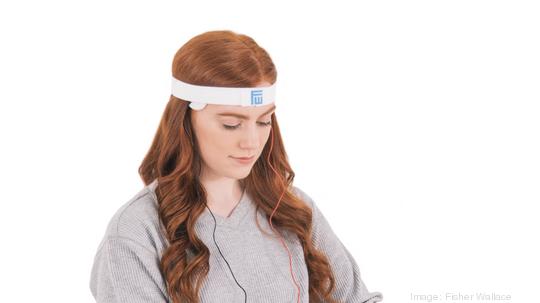
The Seattle Police Department is trying a new approach to treating officers' mental health.
On Thursday, the department announced a pilot study with Fisher Wallace, a New York City-based medical device startup that makes an electronic headset designed to treat anxiety, depression and insomnia. For SPD, the study could yield new ways to treat the mental health of officers who are often called to stressful and tragic events. It's especially important for a population with unique needs.
"For people who really don't think twice about risking their safety in a variety of ways related to police service, they aren't always immediately thrilled to go to talk therapy or to see somebody about antidepressants," said Loren Atherley, director of performance analytics and research at SPD. "Quite frankly, psychotropic drugs are probably not the best thing for people who need to be sharp and alert all the time."
The pilot has openings for 200 officers, of which about 40 have so far signed up, and it will take place over eight weeks, according to Fisher Wallace CEO Kelly Roman. Officers will wear the headset for two 20-minute sessions, once in the morning and once at night.
Roman said officers will answer a standard anxiety questionnaire to establish a baseline before treatment, measuring that against any improvements over two, four and eight weeks. Officers will also wear a small, Fitbit-like device that measure sleep quality. Washington State University is the study's clinical lead.
Fisher Wallace says its headset uses electrical currents to stimulate serotonin, a brain chemical often associated with mental well-being and happiness, while reducing cortisol, the body's stress hormone.
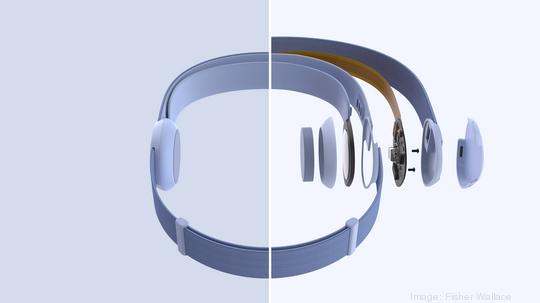
Roman said the company has seen strong clinical results in treating anxiety and depression, but its depression trials needed more separation between the trial group and the placebo group, so Fisher Wallace is starting another trial and hopes to have FDA approval by early next year. Fisher Wallace has also hired a designer to give the device a more modern look.
Atherley himself tried the device a few years ago and thought it might be a good fit for officers as the department tries to improve its mental health initiatives. Although Atherley found it helpful for himself, he said real research, like this pilot, is needed to show it truly works. A successful pilot, he said, will demonstrate a decrease in stress symptoms and improved sleep for officers.
Relations between SPD and the public were strained in 2020 following protests of police brutality in the wake of George Floyd's murder. As for how this pilot could improve those relations, Atherley said everyday small interactions, not so much less-frequent major events, make the largest impact on public perception, and officers are more likely to provide better service if they are in a better headspace.
"I don't think this technology in particular changes any of that in a dramatic way, but it does help support folks who are having interactions with our community, and it helps us to make the most out of assuring those resolve successfully," Atherley said.

